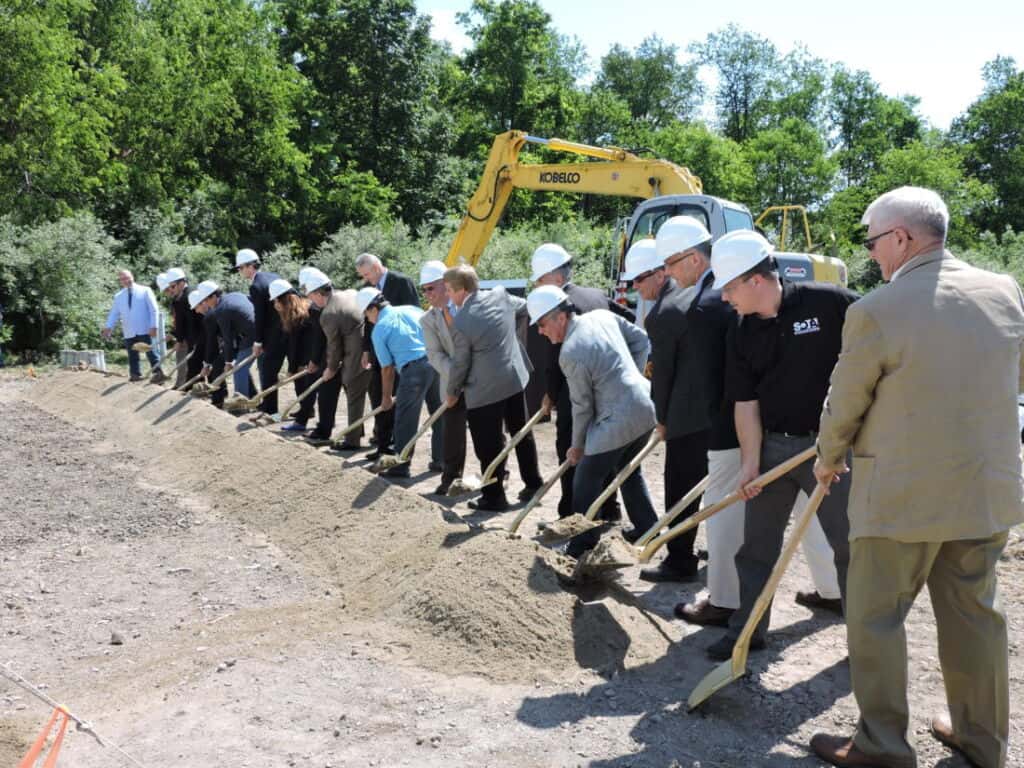5 Boxes to Check Before Applying for a Grant or Loan
July 1, 2021

Groundbreaking at Pietro Fiorentini’s facility. Working to get the job done.
Related Links:
Follow us on social media:
Working to help better your community is always an admiral goal, and your participation is extremely important to that process. However, ideas to make this happen are often blocked by a lack of finances. Grants are awarded by the government or philanthropic organizations to help bring an idea to reality or move an already existing project forward. Grants can help to stimulate the economy, provide public services, support research and public initiatives, and so much more. Grants differ from loans in that grants do not need to be paid back. A loan, which is another available form of financial assistance, may be a better funding source for a project due to their less competitive nature. Because grants do not have to be paid back, the application pools for grant financial assistance can be extremely competitive. Understanding the fundamentals of grants before you start the writing process is key to being awarded a grant. Doing research beforehand about the grant will not only increase understanding and therefore chances of being awarded funding but will keep applicants from wasting time and resources. Here are 5 boxes to check before beginning to write an application for a grant or loan.
- Check the eligibility requirements.
Check this first, so you do not do all that hard work later only to find out you do not meet one of the main requirements for the grant.
- Check the deadline.
If the application is turned in late, there is a good chance it will not be considered for funding despite the content of the application. This is an easy and avoidable mistake to make by ensuring the application can be completed before starting the writing process.
- Check the funding’s goal/priority.
Grants and loans are usually intended for a specific type of project aimed at a certain demographic of the population.
As an example, this year’s past HOPE VI Main Street Grant Program was money allocated specifically for central business districts (Main Street areas), redevelopment of Main Streets, preserve historic or traditional Main Street area by replacing unused commercial buildings, affordable housing initiatives for Main Streets, enhance economic development of the Main Street area. Applicant’s projects need to align with the priorities: (1) located in a Main Street area, (2) redevelops a Main Street area, (3) preserve a Main Street area by replacing unused commercial space with affordable housing units, (4) provide affordable housing, and (5) enhance economic development in the Main Street area. If these priorities were not met, your grant application would probably not be considered.
- Check your relationships.
Having a strong backing by partners is usually a requirement in some form in grant applications. A lot of larger grants require match money to help ensure the success of the project. For nonprofits, match money may be hard to put up themselves, so having partners who understand, trust, and defend the applicant by putting up the match can be invaluable.
- Check your project’s expectations.
Projects awarded funding are expected to see a return on the funder’s investment. Different grants and loans will often describe their expectations in this area. Something to think about beforehand is: Are there ways to tangibly measure your project’s progress? If you will not be able to measure your project’s progress in some form, you might need to reconsider your project.
Why is this so complicated?
The more you dig into the grant process, the more overwhelming it may seem. However, this is intentionally done to weed out those who are not persistent enough about their ideas and projects. Your best friends, when it comes to grants, are the contact people who oversee administering the grants and grant applicants who have been awarded the grant in the past. Ask the funding contacts what they want to see, what previously funded projects did correctly, and what to avoid. Although a grant does not have to be repaid, the work must be put in for a chance to be awarded.
Contact us with any questions!
At the BDC, we may have some knowledge or resources that can help with your project. Feel free to contact us at (304) 748-5041 or contact@bhbdc.com to discuss your project and how we can be of assistance.
